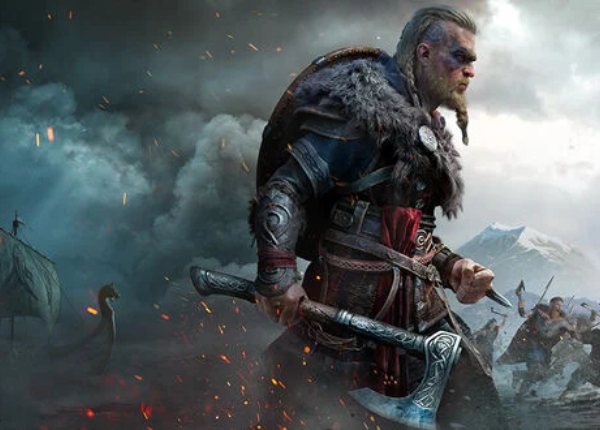The Sunday Papers

Sundays are for actually setting up those shelves I lied about a few weeks ago. And for reading the best writing about videogames from the past week.
On Kotaku, Gita Jackson wrote about writing about videogames and race. It’s an astonishingly calm, considerate reply to the commenters who crop up on any article that discuses anything to do with race. I’ve read so many words about hostile, bad faith commenters, but this is one of the only pieces I’ve seen that I think actually has a chance of getting through to some of them.
As someone who has a knee jerk reaction whenever someone talks shit about pop music, I get that when you make something you like part of your identity, any criticism feels like a knife in the back. But it isn’t. It’s just a conversation, one that can be had clearly and plainly, without anger.
Also on Kotaku, Elizabeth Ballou chronicled the rise and fall of the Frag Dolls, an all girls Esports team owned by Ubisoft that dissolved in 2015. It’s a broadly positive, celebratory piece that doesn’t skip over the issues that sprang to my mind, having never heard of the Frag Dolls before. Excellent stuff.
At the time, I had doubts that I hardly knew how to voice. The early persona of the Frag Dolls exuded a tough-girl sexiness that played into girl gamer stereotypes even as it dispelled them. In their earliest publicity photos, the Frag Dolls stared down the camera, ghosts of smiles on their lips, some with midriffs bared by their tank tops. In the mid-2000s, I was just entering my teens, and I was painfully aware of the difference between my own gawky body and the cool, polished allure of the Frag Dolls. They are not like me, I remember thinking, and the thought stung. Did I need to have that kind of beauty to make up for my unfeminine obsession with games?
I always like reading thoughts from AI aficionado Mike Cook. Here are some of his older thoughts on storytelling and procedural generation, with some fresh ones sprinkled in.
When you play Spelunky, or Risk of Rain, or most procedurally generated games, the implication is that each time is a fresh run through the world – even if you’re cursed with eternal life, you did die, and this is what happens next. This means that while the player can learn about the content of the game, there’s no real connection between the first time you play the game and the tenth, or my first time playing the game. Procedural generation is a plot point at best, but it rarely factors into our understanding of the game. It’s like asking whether anti-aliasing factored into your last playthrough of Breath of the Wild.
Skeleton’s blog post about relationships in Else Heart.Break() revolves around some pretty big spoilers, both for the game and everyday life. I’m very glad I read it.
Where’s the adventure come from in Else Heart.Break()? – something relatively down to earth and simple. There’s no murder to solve or Crypt of Atlantis to raid. You’re young and careless in the world, and you’ve just moved to a new city for a job where you don’t know anyone. I’ve done that before, and the thing that immediately will grab you is just how big the relatively small world seems at first. When you don’t know anyone or anything about a place, every street corner has a different possibility around it. If you’re the kind of person that believes meeting people is an adventure: I think you’re going to rub my shoulders and say some shit like “but how do you feel spirit brother?” next time we meet. ESB is also a game about getting what you want, or maybe not getting it at all.
THQ Nordic recently ‘apologised’ about their participation in a Q&A on 8Chan, an online forum known for allegedly hosting child pornography and also being an extreme-right cesspit. Patrick Klepeck’s response to that apology on Waypoint is spot on.
Over the weekend, I made a snide tweet about how THQ Nordic should have to live with this mark “forever.” The foreseeable forever is a time at which I will personally determine it’s no longer relevant to point out the company held hands with a place better known for fostering active fascism than video game commentary. That time is not now, less than a week after THQ Nordic stepped in it to a degree that’d be laughable if it wasn’t so obviously harmful.
Also on Waypoint, Cameron Kunzelman critiqued the idea that heaven is only for the deserving. His article is about Metro Exodus, but really it’s about our planet.
If you’ve been reading this column for the past two years, I’m a broken record on pointing this out, but there’s something strange about how easy it is to be bad and how herculean it is to make good things. These things require the same will, the same modes of thought, the same decision trees the we’re navigating in every moment of our lives. It’s strange to see the theology of Fallen Humanity reinvigorated with each new game release, as if it’s an ideological pulpit that’s using a morality system to explain that we’re just sinners one slippery action away from the pit.
For Variety, Anthony McGlynn spoke to various people who have insight about the impact Brexit is going to have on the British games industry. It’s bad. The impact will be bad. Who’d have thunk it.
“A few of my team when I was at Improbable were EU nationals. They weren’t a dominating presence but those guys were brilliant,” Nick Button-Brown, chairman of Outright Games, told Variety. “They brought in such great skills and they taught everybody else. They shared their knowledge and everybody was better from working with really good people. But they came because it was easy. They didn’t have to do any Visas, they knew they could come over, they knew they could go back. Now it’s not so easy. Now it’s lawyers and doing Visas and it slows it down, and not only that, being honest, they don’t feel that welcome.”
What happened to the man cave? So asks Kaitlyn Tiffany for Vox in her interview with Tristan Bridges, a sociologist who’s writing a book about the phenomenon. Man caves are a broader church than I first thought, and not necessarily as sad.
Bridges has interviewed man cave builders all across the country, and though he’s familiar with the football-dude stereotypes of man caves, he says it’s actually pretty hard to generalize what’s in them. To illustrate, he says that one of his favorite “man caves” was a room that a man in his 70s was using purely to do large puzzles without annoying his wife. Tinker rooms, which center boyhood hobbies like model trains and handicrafts, are common among men that age. To them, a man cave takes on its “masculinity” solely by holding items that don’t totally belong in the rest of the house. The framed-jersey and pinup-poster man cave is a later iteration of the concept.
I haven’t had time to read many of these entries to Emilie M. Reed’s Lost Histories writing jam, but I dig the idea.
I can’t remember if I remembered to put this Quantum Garden in the Papers when I saw it. In any case, here’s an interview with the person who made it where he talks about other wobbly things he’s done.
Chris Bratt’s latest People Make Games is about how a Football Manager researcher helped a goalkeeper score for his country. I don’t really care for football or pretending to manage people who play football, but this is a neat story.
Noclip’s latest documentary tells the untold story behind Astoneer’s difficult development. I’ve only watched the first third so far, which is a heartwarming tale of friends getting together to work on something they loved. Note the content warning about grief.
There is much to enjoy about this swan-based tweet.
Somebody has finally set up a Twitter account that addresses the most important question in videogames.
Music this week is Morning Dew by The National.
[ad_2]
Source link




